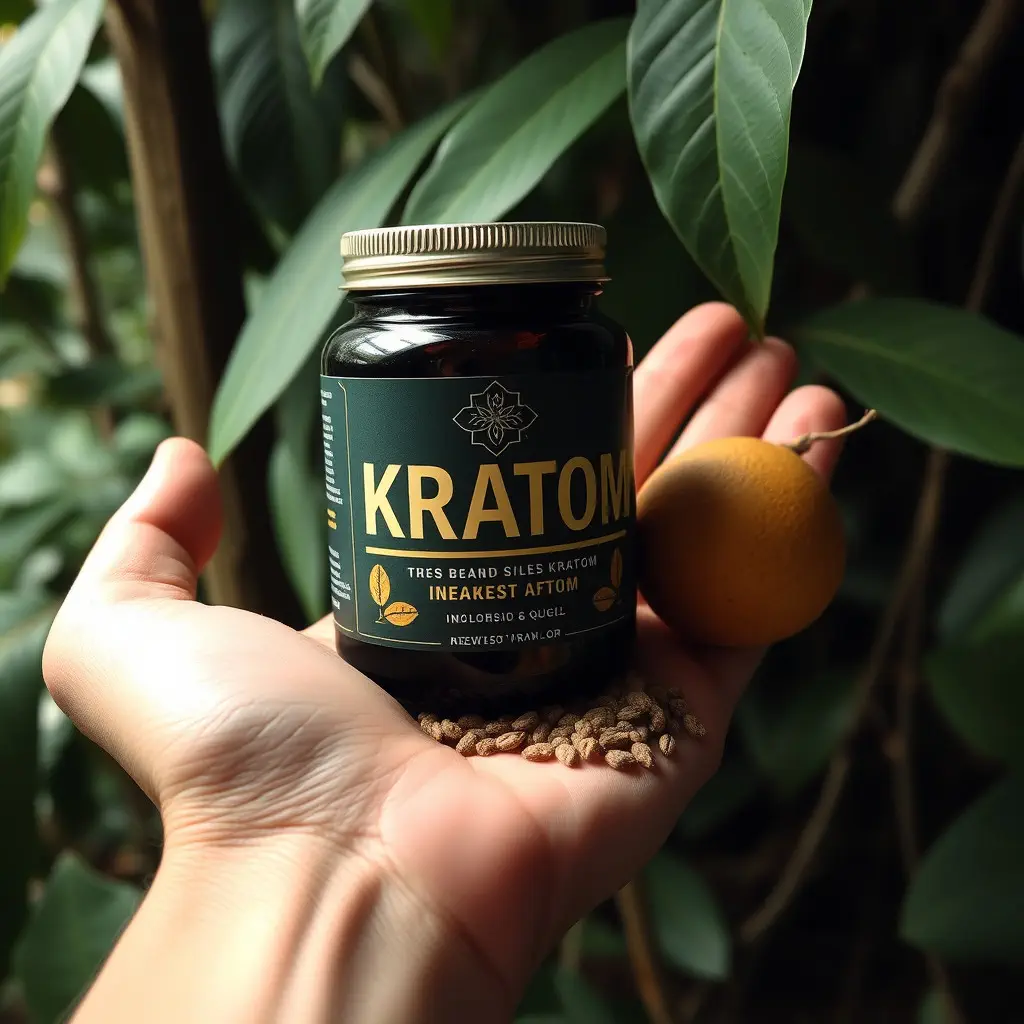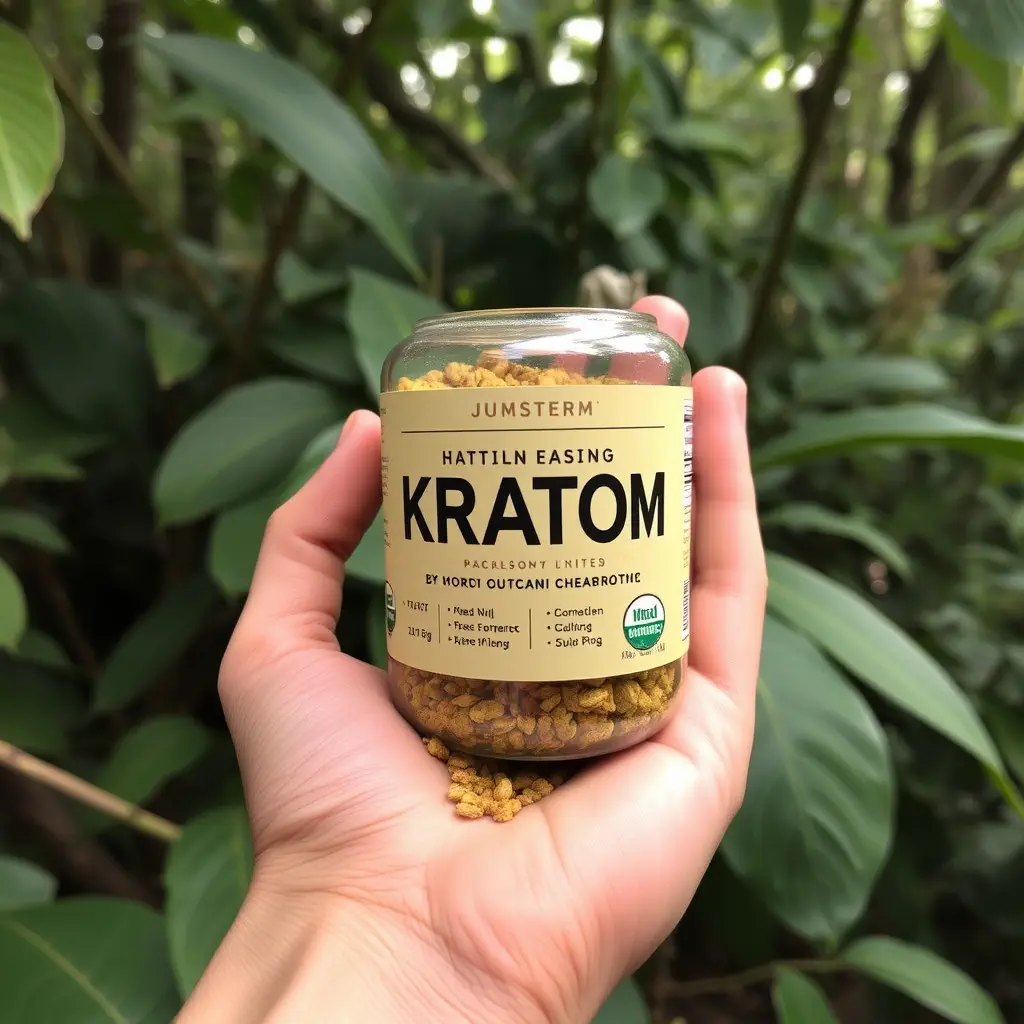Kratom, a botanical extract from the Mitragyna speciosa tree, is under scientific scrutiny as a potential aid in addiction treatment, particularly for opioid dependency. Its alkaloids, mitragynine and 7-hydroxymitragynine, may interact with opioid receptors to alleviate withdrawal symptoms and cravings. Research is ongoing to evaluate its effectiveness as a harm reduction tool within addiction treatment protocols, noting its analgesic and anxiolytic effects. However, the complex pharmacology of kratom, including the risk of dependency or adverse reactions, necessitates careful consideration by healthcare providers. The integration of kratom into mental health counseling presents both potential benefits and risks, making it imperative for professionals to stay informed on its role in recovery through evidence-based practices. As the legal status and efficacy of kratom in addiction treatment remain subjects of debate, mental health professionals must navigate ethical and regulatory frameworks, ensuring personalized, informed care that adheres to both clinical implications and legal restrictions. The dynamic nature of kratom's legal environment further complicates its use in addiction treatment, emphasizing the need for careful monitoring and individualized treatment plans.
Exploring the intersection of mental health and addiction treatment, this article offers a detailed examination of kratom’s role within counseling. From its integration in therapy sessions to navigate substance use disorders, to the ethical and regulatory frameworks guiding its use, gain insights into how kratom can be a significant component of addiction treatment with kratom. Understanding its complexities is crucial for mental health professionals, as it represents an evolving approach in the field of counseling.
- Understanding Kratom's Role in Addiction Treatment: A Comprehensive Overview
- The Integration of Kratom in Mental Health Counseling for Substance Use Disorders
- Navigating the Ethical and Regulatory Considerations of Kratom Use in Counseling Settings
Understanding Kratom's Role in Addiction Treatment: A Comprehensive Overview

Kratom, a tropical evergreen tree native to Southeast Asia, has garnered attention in the realm of addiction treatment due to its potential therapeutic properties. Its leaves contain compounds that can influence the brain’s opioid receptors, offering both stimulant and sedative effects, which may help manage withdrawal symptoms and cravings associated with opioid addiction. Incorporating kratom into addiction treatment protocols is a subject of ongoing research, as preliminary studies suggest it could serve as a harm reduction tool for those transitioning from more potent opioids. The alkaloids found in kratom, such as mitragynine and 7-hydroxymitragynine, are believed to play a role in its analgesic and anxiolytic effects, which can be beneficial in addiction treatment with kratom. However, it is crucial for medical professionals to approach this substance with caution due to its complex pharmacology and potential for dependency or adverse effects. Ongoing clinical trials and research aim to elucidate the efficacy and safety of kratom as an adjunct to addiction treatment, providing a more nuanced understanding of its role in the recovery process. As such, healthcare providers are encouraged to stay informed about the latest findings to guide patients effectively and ethically within the scope of evidence-based practices.
The Integration of Kratom in Mental Health Counseling for Substance Use Disorders

Kratom, a botanical substance derived from the leaves of the Mitragyna speciosa tree, has garnered attention in the realm of addiction treatment, particularly for individuals grappling with Substance Use Disorders (SUDs). Its inclusion in mental health counseling presents a nuanced approach to those suffering from addictions. Proponents argue that kratom may offer a safer alternative to opioids, which are often prescribed for pain management but carry a high risk of dependency and overdose. In the context of addiction treatment with kratom, mental health professionals can explore its potential benefits and risks as part of a comprehensive recovery plan. The alkaloids present in kratom leaves, namely mitragynine and 7-hydroxymitragynine, are believed to interact with opioid receptors in the brain, offering pain relief and mood enhancement. This can be particularly beneficial for individuals transitioning from more potent substances. However, the integration of kratom into mental health counseling must be approached with caution due to its psychoactive properties and the lack of long-term clinical study outcomes. Counselors are advised to stay informed about the evolving research on kratom’s efficacy and safety in treatment settings, ensuring they provide evidence-based guidance to their clients. The ongoing debate around kratom’s legal status and its role in addiction treatment underscores the importance of a tailored approach to each client’s unique needs, emphasizing the need for careful consideration and monitoring within mental health counseling practices.
Navigating the Ethical and Regulatory Considerations of Kratom Use in Counseling Settings

Navigating the complexities of addiction treatment with kratom in counseling settings requires a nuanced understanding of both ethical and regulatory considerations. Kratom, derived from the leaves of Mitragyna speciosa, has gained attention for its potential in pain management and as an alternative to opioids for those struggling with addiction. However, its status as a Schedule I controlled substance under the DEA’s Interim Final Rule necessitates counselors to adhere to stringent guidelines when addressing kratom use with clients. Ethical practice dictates that mental health professionals must stay informed on the evolving legal landscape surrounding kratom, ensuring they provide evidence-based guidance while respecting the rights and autonomy of their clients. Counselors must balance the therapeutic benefits reported by some individuals with the lack of comprehensive research on its long-term effects and potential for abuse or dependence. This delicate balance underscores the importance of individualized treatment plans that consider both the clinical implications and legal constraints associated with kratom use. Professionals in the field must also navigate the ethical dilemmas presented by conflicting state and federal laws, ensuring compliance while maintaining a commitment to client welfare and promoting informed decision-making regarding kratom consumption.
In conclusion, the potential for kratom as a component within addiction treatment regimens, particularly in the context of substance use disorders, has been thoroughly explored. The integration of kratom into mental health counseling presents both promising avenues and complex challenges, underscored by ethical and regulatory considerations that must be carefully navigated. As the field continues to evolve with ongoing research and clinical trials, it is clear that a nuanced understanding of kratom’s role in addiction treatment is imperative for mental health professionals. This comprehensive overview should serve as a foundational guide for clinicians and policymakers alike, emphasizing the importance of informed decision-making and patient-centered approaches in the pursuit of effective recovery strategies.






